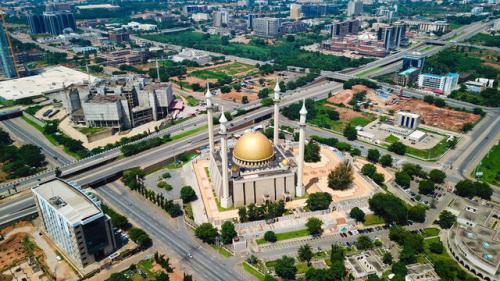Make the most of your time in Abuja with these tips: Tips for visiting Abuja
The experience of visiting Abuja, Nigeria’s capital city, is one that will remain with you forever. With its location in the heart of the country, Abuja blends modern design with the warmth of Nigerian hospitality, vibrant cultures, and awe-inspiring landscapes. It’s important to know a few insider tips if you plan on staying for a couple of days or if you’re planning to stay for an extended period of time so that your trip is enjoyable, memorable, and fulfilling. As a result, I have compiled this guide to help you with everything you need to know, from budgeting to local etiquette to the top spots you don’t want to miss on your trip to the city.
Key Takeaways
-
Best Time to Visit: Dry season (Nov–March)
-
Must-See Spots: Aso Rock, Millennium Park, National Mosque
-
Dining Highlights: Local spots like Nkoyo and The Place offer authentic Nigerian flavors.
-
Shopping: Don’t miss the Arts and Crafts Village for unique souvenirs.
Table of Contents
- Essential Tips for Planning Your Trip
- Getting Around Abuja
- Must-See Places and Activities
- Dining and Where to Eat
- Shopping and Souvenirs
- Practical Tips and FAQs
What you need to know to plan a successful trip
It is easier than you might think to plan for Abuja. The following steps will help you prepare for the event:
1. Decide when is the best time of year to visit
-
It is important to note that Abuja has two main seasons: the dry season (November-March) and the rainy season (April-October). The best time of year to see clear skies is during the dry season, when temperatures hover around 32°C (89°F), especially during the months of December and January.
-
Events: It is recommended to plan your visit around cultural events like Abuja Carnival (November) if you are interested in getting a glimpse of local customs and observing vibrant street parades.
2. The budgeting and accommodation process
-
There are a variety of accommodation options in Abuja that suit every budget. An average night’s stay at a luxury hotel like the Transcorp Hilton costs around $200, while an average night’s stay at a budget hotel like the Summerset Continental costs about $50.
-
Costs: The cost of living in Abuja can range from a moderate to a high level, so you will need to budget well. In a mid-range restaurant, a decent meal can cost between 3,000 ($7) and 5,000 ($12) for a person.
“I once spent a week in Abuja on a modest budget by choosing affordable local spots over chain hotels. I discovered that local lodges offer friendly staff, clean rooms, and meals for around ₦4,000 ($10) per night.”
Here are some tips on getting around Abuja
Getting around Abuja can be a lot of fun, but it also requires some planning. It is important to know how to get around smoothly, so here are some tips:
1. The public transport system
-
Buses: Public minibuses are cheap (around ₦200 or $0.50 per ride) but can be crowded and infrequent.
-
Taxis & Ride-Hailing: Apps like Bolt and Uber are widely available and safe, with fares averaging ₦500–₦1,000 ($1–$2.50) per short trip. They’re a great choice for getting around the city with ease.
“I recommend trying Bolt at least once. Drivers are friendly, and you get to learn a lot about Abuja from them!”
2. Renting a Car
- Cost: Car rentals are also available, averaging around ₦20,000–₦30,000 ($50–$75) per day. This is ideal for exploring outer areas or if you’re traveling in a group.
Listed below are some of the most popular places and things to do in the area
With plenty of modern marvels and natural landscapes, Abuja is a treasure trove of things to see and do. The following is a list of some of the best places to visit in the city:
1. Aso Rock and Zuma Rock
-
Aso Rock: This massive outcrop, located near the Presidential Complex, is iconic. While climbing is restricted, the sight is breathtaking, especially around sunset.
-
Zuma Rock: Located about 45 minutes from the city center, Zuma Rock is an awe-inspiring natural wonder with a unique face-like shape.
2. Millennium Park
-
Why Visit: Ideal for picnics, walks, or unwinding with friends. Entry is free, and the park offers lush greenery and stunning views, especially in the early morning and late afternoon.
“The first time I strolled through Millennium Park, I was struck by how peaceful it felt amid the city buzz. Watching families and friends gathered there made me feel like a local.”
3. National Mosque and National Church of Nigeria
-
Experience Abuja’s Religious Landmarks: The National Mosque, with its golden dome and graceful minarets, and the National Church are architecturally stunning. Both sites are welcoming to visitors, and entry is free.
4. Jabi Lake
-
Activities: A lakeside experience offering boating, lakeside picnics, and even shopping at the nearby Jabi Lake Mall. Boat rides cost around ₦1,500 ($3.50).
| Attraction | Entrance Fee | Highlights |
|---|---|---|
| Aso Rock | Free | Sunset views, historical significance |
| Millennium Park | Free | Picnics, lush scenery |
| Jabi Lake | Free, Boat rides at ₦1,500 ($3.50) | Boating, lakeside picnics |
Dining and Where to Eat
Abuja’s food scene is rich, offering local and international options to suit any palate. Here are a few recommendations:
1. Local Nigerian Dishes
- Nkoyo: A popular spot for Nigerian cuisine, located at K-City Plaza in Wuse II. Try the Jollof rice and Suya for around ₦3,500 ($8).
- The Place: Known for its quick service and authentic Nigerian flavors, with meals averaging around ₦2,500 ($6).
2. International Cuisine
- Blucabana Restaurant & Cafe: Located in Mabushi, Blucabana offers a relaxed setting with Mediterranean and international dishes. Meals range from ₦4,000–₦10,000 ($10–$25).
- Dunes Cafe: Located in Maitama, this upscale restaurant combines Lebanese flavors with Nigerian dishes, and it’s a great spot for brunch or dinner.
“At Nkoyo, I savored one of the best Suya platters. It was my introduction to Nigerian spices, and it was unforgettable!”
Shopping and Souvenirs
No trip to Abuja is complete without shopping for souvenirs. Here’s where to go:
1. Wuse Market
- Description: Wuse Market is a bustling spot where you’ll find everything from handwoven baskets to traditional Ankara fabrics. Prices vary, but don’t hesitate to bargain!
2. Arts and Crafts Village
- Why Visit: Located near the National Mosque, this village offers a wide range of unique crafts, paintings, and sculptures. A piece of art can cost anywhere from ₦2,000 ($5) to ₦20,000 ($50), depending on size and craftsmanship.
“The Arts and Crafts Village was a highlight of my shopping experience—local vendors are happy to share the story behind each handmade piece.”
Practical Tips and FAQs
Here are a few practical tips for visiting Abuja, along with answers to common questions.
1. Safety
- Tip: Like any major city, Abuja has its safe areas and places to avoid. Stick to well-populated areas, especially at night, and always use trusted transportation options.
- Pro-Tip: Check with locals or your hotel concierge about areas to avoid.
2. Currency Exchange
- Tip: While ATMs are available, exchanging cash at banks or certified bureaus is safer. Avoid street currency exchangers to steer clear of scams.
- Daily Budget: Around ₦15,000–₦20,000 ($37–$50) for moderate dining, transport, and activities.
| Item | Average Cost in Abuja |
|---|---|
| Budget Meal | ₦2,500–₦4,000 ($6–$10) |
| Mid-range Hotel | ₦15,000–₦25,000 ($37–$62) |
| Bolt Ride (4 km) | ₦500–₦1,000 ($1–$2.50) |
3. Language
- English is widely spoken in Abuja, but it doesn’t hurt to learn a few local words in Hausa or Yoruba to show respect for the culture.
FAQs
1. Is Abuja safe for tourists?
Yes, Abuja is generally safe. Stick to populated areas and use reliable transport options, like Bolt or Uber.
2. What’s the best time of year to visit?
November to March is ideal, especially for outdoor activities and sightseeing.
3. How much should I budget per day?
On a moderate budget, aim for around ₦15,000–₦20,000 ($37–$50) per day for food, transport, and activities.
Final Thoughts
Visiting Abuja is all about experiencing the heart of Nigeria in a unique and memorable way. From the warm smiles of locals to the vibrant energy of its markets, Abuja promises an adventure like no other. Plan wisely, stay curious, and most importantly, enjoy every moment of your journey to Nigeria’s capital!







